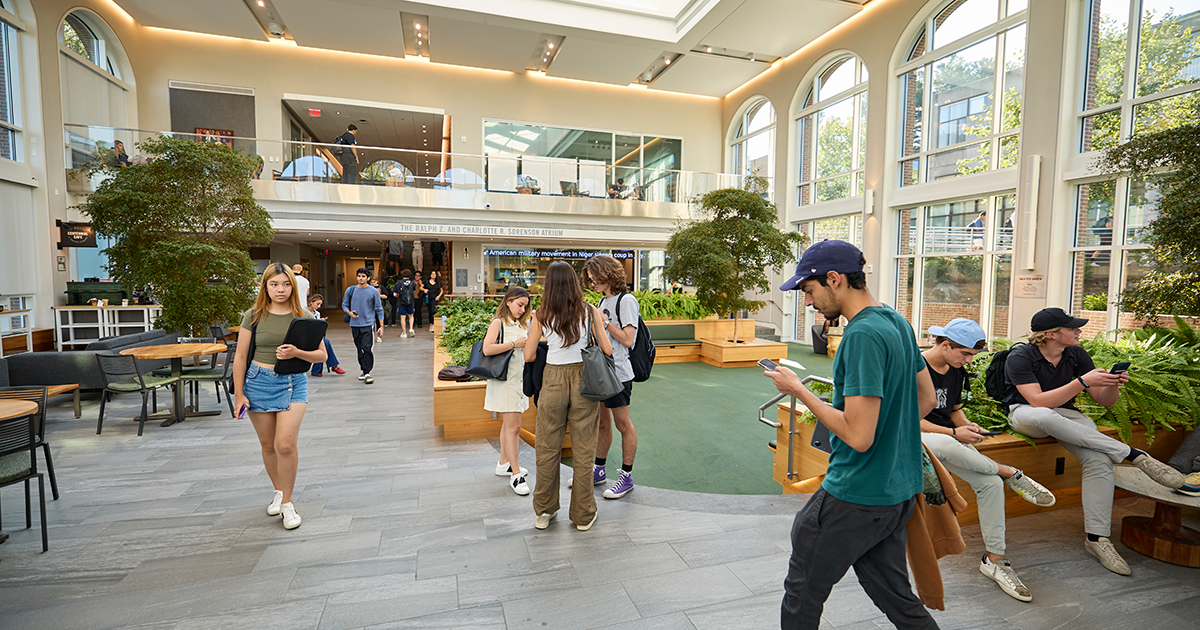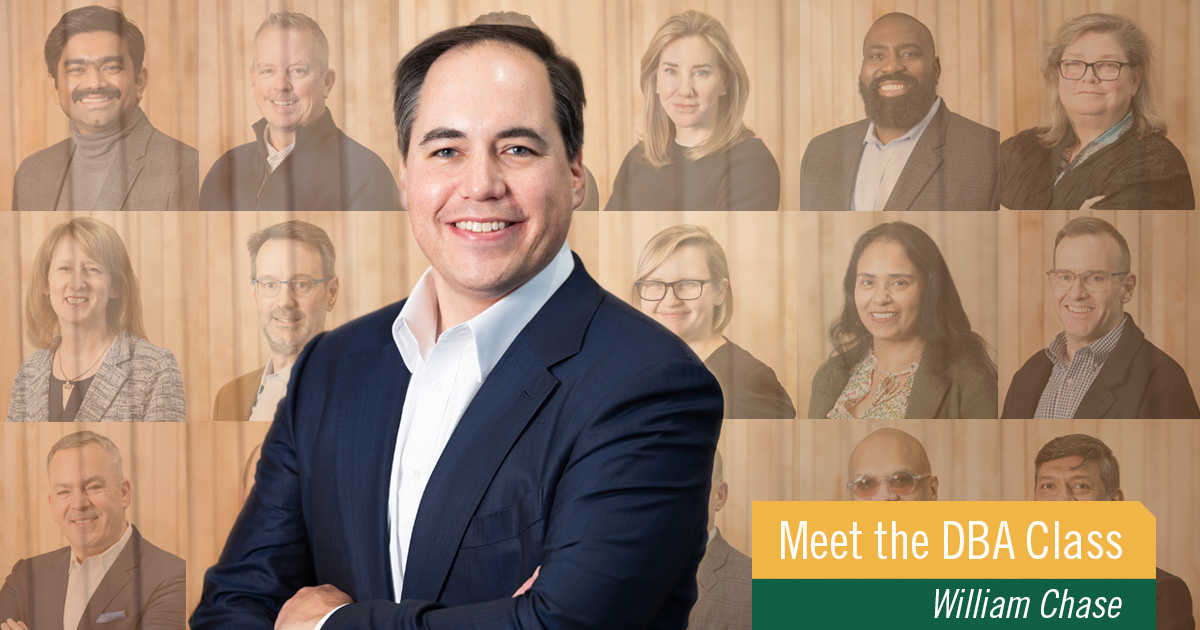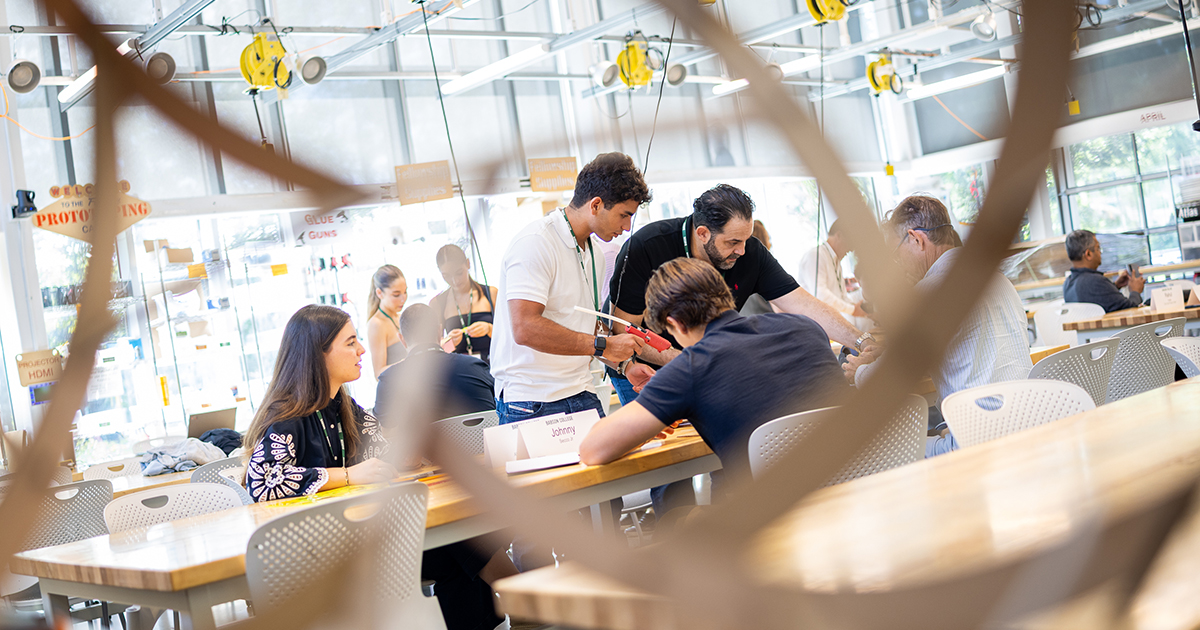With a Little Help from My Friends: The Power of Peer Tutoring

The student’s determination stuck out to Nick Trussler ’27.
Trussler is a peer tutor at Babson, and week after week in the spring, he helped the same student with his coursework for Principles of Finance. The student admitted that the math-heavy class wasn’t easy for him, but week after week, he showed up at the Peer Tutoring Center, bringing with him good questions and maximum effort.
In the end, the student’s work paid off. He did well on his quizzes, midterm, and final. “It was really great to see someone succeed,” Trussler says, “knowing they had to work harder than others to understand the content.”
Experiences such as this are why Trussler enjoys tutoring. Finance can feel intimidating for some students, and Trussler helps them pore over topics such as interest rates, bonds, and discounted cash flows. “It is an opportunity for me to give back to the Babson community,” Trussler says.
Trussler is one of 25 student tutors participating this school year in Babson’s long-standing Peer Tutoring Program, which harnesses the power of students helping students. The program brings together students who need extra support in some of the College’s required core courses with trained peer tutors who have taken those very same courses in the past.
“They are really good at listening and coaching and meeting the needs of individual students,” says Brenda Kostyk, who manages the peer tutors as part of her role as program manager of undergraduate experiential learning and academic excellence. “They have this tremendous spirit of wanting to help others.”
Founded nearly 15 years ago and having undergone a number of recent changes to freshen up and improve the program, peer tutoring is indicative of the culture of support at Babson, where a slew of initiatives and organizations bolster students both academically and personally. “I think Babson is very much a place where you are not alone,” Kostyk says. “We’ve got your back.”
A Different Connection
The Peer Tutoring Center, the bright and airy space where the tutors work with students, is located in the heart of campus in Babson Hall, directly across from Babson Commons and right around the corner from the other academic support centers for math, writing, and speech. “I love this space,” Kostyk says. “We get a lot of traffic.”
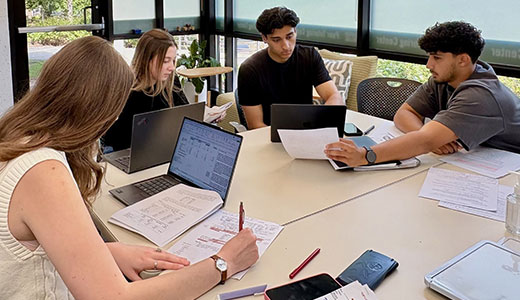
The space is new for the center this year and is larger and more visible than its old location. Other changes have also been made to the program, including launching a more comprehensive website, investing in new classroom tech to allow for remote speakers, collecting more data on tutoring sessions so as to continually evaluate how the program is doing, and revamping the training of tutors, so that they employ a coaching mindset with students.
“It’s about empowering students to get to the answer on their own instead of showing them how to do it,” Kostyk says.
Taken together, the changes signal to students a strong message—“We are invested in your success,” Kostyk says. Kostyk, who has worked at Babson for 19 years, is also new to her role, having previously worked in the Hoffman Family Undergraduate Center for Career Development. She relishes engaging with students. “You see them grow and see the impact you’re having,” she says
Kostyk enjoys watching the peer tutors in action, how they make sure to create a friendly, welcoming atmosphere in the center. They recognize that asking for help isn’t always easy for students. “It might take a lot for a person to walk through that door,” Kostyk says.
Interacting with a fellow student, as opposed to a professor, creates a different learning dynamic. Tutors are able to commiserate and share their own experiences and struggles in the classroom. In their training, Kostyk says, tutors are told: “You are not a teacher. You are not an authority figure. You are a peer tutor. You can connect with them on a similar level.”
The Best Part
Peer tutoring positions are much sought after. Kostyk constantly hears from students inquiring about openings or faculty recommending potential tutors. Candidates are evaluated on a number of factors, including academic performance, communication and interpersonal skills, and a desire to help others.
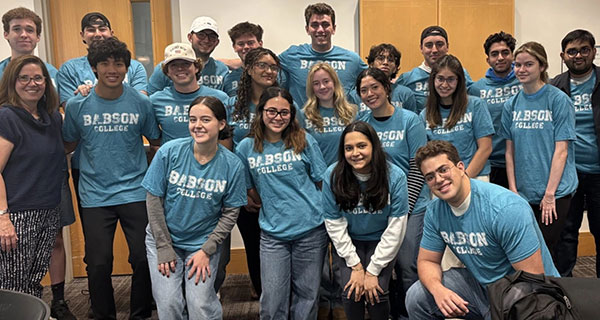
Once they’re hired, peer tutors keep busy, offering one-on-one appointments, walk-in hours, and group sessions. They provide assistance in five core courses: financial accounting, managerial accounting, principles of finance, principles of microeconomics, and technology operations management.
During the 2024-2025 academic year, approximately 1,000 appointments were scheduled with peer tutors. Last month alone, more than 250 appointments were scheduled.
Through those many appointments, most of which are with first-years or sophomores, tutors are searching for the best way to instruct each individual student. They ask open-ended questions. They coach. Some students come to the center seeking confidence or confirmation. They may want to talk out a lesson and figure out if they understand it. Some students are regulars and rely on the routine support they receive.
“Students have different learning styles. They have different lived experiences,” Kostyk says. “You can see the tutors learn a lot with the different people they interact with.”
As a tutor who offers help in financial accounting, Paloma Ovelar ’27 has had to navigate the different learning styles of students. Every session challenges her to find the most effective way to communicate a particular concept. “Some students need step-by-step guidance,” she says, “while others just need reassurance that they’re on the right track.”
After each session, she watches as students grow more confident. She’s rooting for them. “It feels very rewarding when they come back to tell me they did well on an exam,” Ovelar says. “That might be the best part.”
Posted in Community

